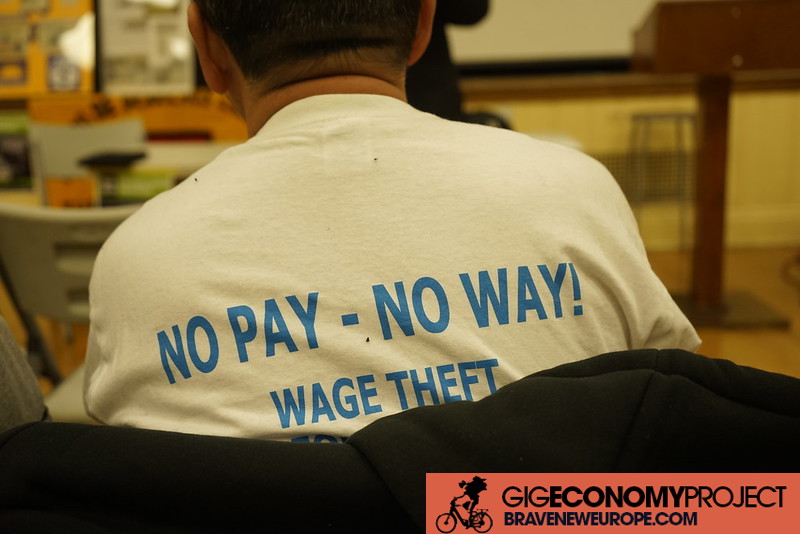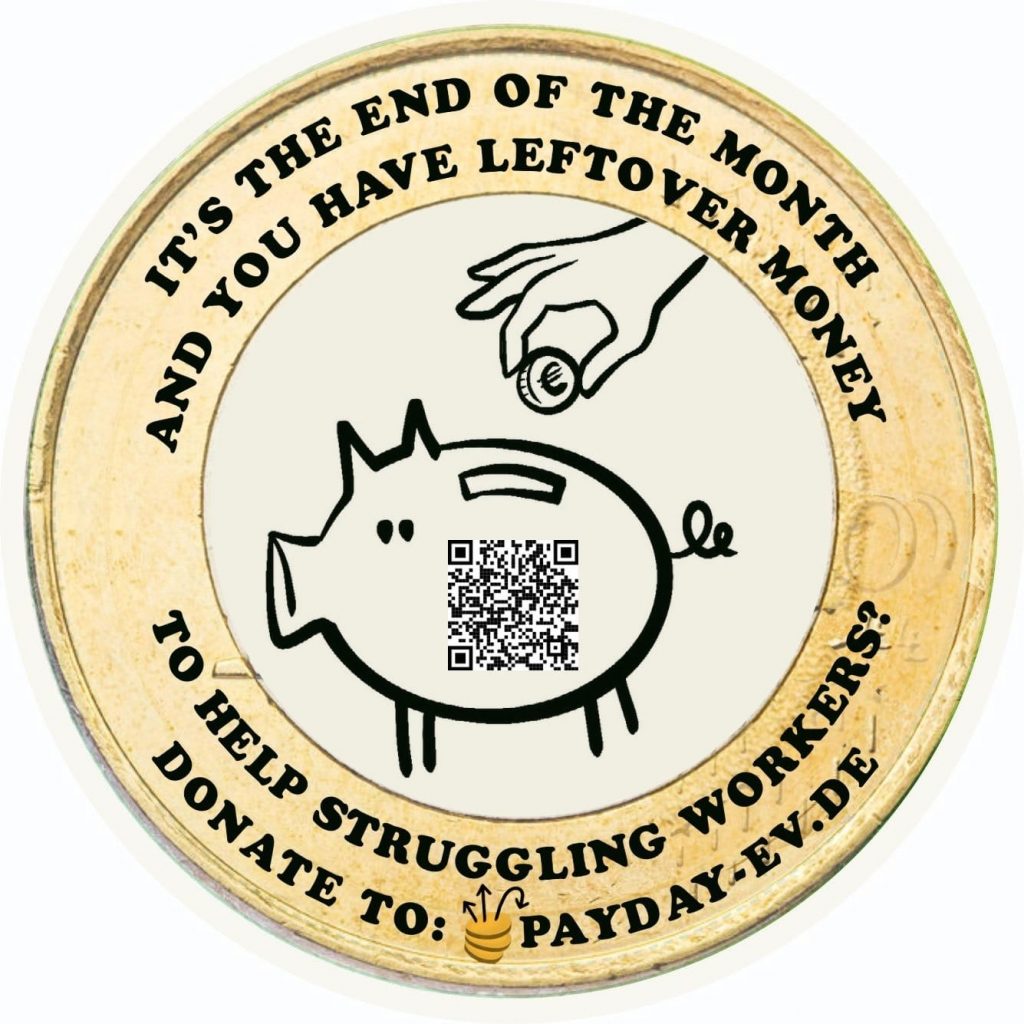The PayDay e.V. fund in Berlin has been established to counter the threat of wage theft as a tool for union-busting
The Gig Economy Project is a media network for gig workers hosted by BRAVE NEW EUROPE. To find out more, click here. To get GEP’s newsletter in your inbox, click here.

On Sunday [26 February], the ‘PayDay e.V.’ fund was launched at an event in the Nuekölln district of Berlin, Germany.
The solidarity fund aims to financially support workers who are organising at their workplace and suffering from a loss of income related to this organising, either because they have been fired or because the company is simply not paying them all or some of the wages they are owed.
One of those who spoke at the launch event was Raul (full name not used for anonymity purposes), a Spanish grocery delivery courier at ‘Flink’ in Berlin who was fired in January after criticising some of the company’s working practices in an interview in December.
“If you have commitment, you want justice and are willing to sacrifice for what is fair, then this solidarity fund can be crucial,” he tells the Gig Economy Project.
Raul had been a key organiser of the workers at Flink as they attempted to establish a Workers’ Council in Berlin, coming up against fierce resistance from Flink’s management. He believes that he has been fired not because of the interview, as Flink claims, but because the company wants to union-bust.
Raul is currently fighting in court to get his job back and will find out if he is successful at a hearing in May, but what is he going to do in the meantime for money?
“I have survived because I have some savings, because when I started to organise I realised I need to save for this type of situation because I knew this would eventually happen,” he says. “I saw it happen to other workers in a similar situation, like at Gorillas.”
READ MORE: Gorillas in Berlin: chronic problems and mounting divisions
The Gig Economy Project reported last year on the problems workers were facing at Gorillas due to wages being paid late, not in full or not at all, with some of the workers who were involved in the Workers’ Council facing particular problems with unpaid wages. It’s these experiences which led workers from different Workers’ Councils to start the PayDay fund initiative.
“We were talking at a Workers’ Council roundtable in Berlin about what issues we were having,” Max (name changed for anonymity purposes), a Lieferando (Just Eat) courier who has been a representative on the Lieferando Berlin Workers’ Council for six months, tells GEP. “We realised that this issue of the financial loss workers are having from organising was a real problem, so we all agreed this initiative would be a good idea.”

The PayDay fund does not just include workers in the gig economy. Some of those behind the initiative were involved in an important 2018 labour dispute at the now-closed Wombats hostel in Berlin. Max says that the core group of organisers include a worker in education and a tax assistant. But what they all share in common is an experience of precarious work, and with that precarity often comes “wage theft”, according to Max.
“Wage theft is always the main problem,” he says. “We are always talking about wage theft. Even with Workers’ Council members, they steal wages from us. With each individual it is a small amount, but the total is millions.”
Lack of payment of contractually obligated wages is of course illegal, but that does not stop it happening on an industrial scale. There are no official statistics held on wage theft, but one estimate in the UK found it to be worth £35 billion in 2019 alone. Max estimates that he loses 30% of his wages through a variety of means.
READ MORE: Inside Berlin’s food delivery workers movement
“They cheat me on holiday pay, they cheat me on sick pay, they don’t pay me for the entire shift, if something happens they get rid of the shift, I have to pay for my work gear including my mobile: it’s in my contract that I should be paid in full for all these things. So we just want them to give what they agreed in the contract.”
For workers who are involved in organising, usually they can retrieve the money eventually through pressure on the bosses or through the courts, but this can take a lot of time, even years, and during this time period workers still need to buy food and pay rent. It’s this time lapse which makes wage theft “an effective union-busting strategy,” Max says.
The PayDay fund is designed specifically to counter this threat. When the PayDay fund identifies someone for support, they will try to pay the whole of that person’s unpaid wages, up to a legal limit of around €2,000. When the worker eventually gets back the owed wages from the company, the money is recycled so that it can be used to support another worker in dispute.
They are raising money for the fund through donations and are organising promotion videos for social media. Payday fund beer coasters have been produced (see image above) and they plan to go round left-wing bars in Berlin to pitch for money. They will also approach trade unions for funding, but want the initiative to remain independent, cross-union and community-based.
“All the time we have people who need the money,” Max says.
He would like to see the idea of solidarity funds spread.
“We want to show proof of concept,” Max explains. “That even with a small number of people, this can be something important for workers’ struggles.”
Click here for full details about the PayDay E.V. fund and to make a donation.



Be the first to comment